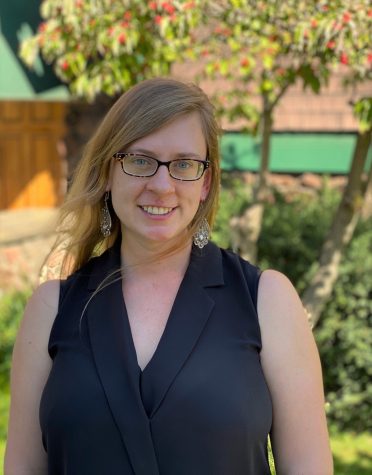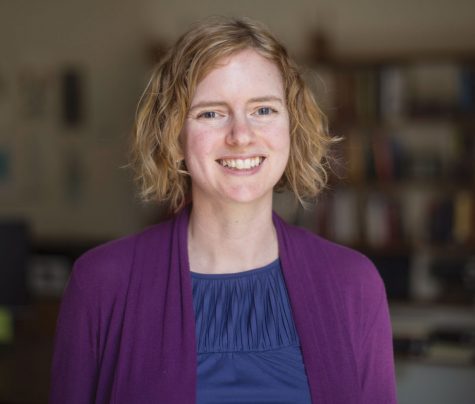Whitman welcomes new courses amid search for interdisciplinary collaboration
October 8, 2020
Beginning Arabic and the First Year Seminars have both emerged after years of deliberation and push from both faculty and students. In the hope of diversifying and expanding what a liberal arts education entails, these two classes seek to tackle concepts both worlds away and just beyond our bedroom walls.
Beginning Arabic is the first Arabic language class to be offered at Whitman.
The course description reads, “Through a course emphasis on authentic materials in video, audio and written formats, students explore cultural topics and social customs related to life in the Arabic-speaking world.”

What is most valuable according to Dr. Emily Sibley is the “interdisciplinary” elements that this new course provides.
Arabic allows students to view programs that Whitman already offers in a new light. The nature of language is to be intertwined with culture and politics.
“Geopolitically, the U.S. remains very involved in the Middle East,” Sibley said.
The importance of dialogue cannot be understated when it comes to issues that concern both parts of the globe.
The Middle East and Arabic altogether are “often misperceived.” Dr. Sibley recognizes the unknowns that cloud the discipline and embraces the challenge of allowing students to discover the realities of the language and cultures individually.
“When you study and use the language, you learn about yourself at the same time that you learn about others,” Sibley said.
Uncovering assumptions you may be holding onto allows you to learn more about why you perceive topics in a particular way.
“We think of things as being very bounded — whether that’s disciplinarily or otherwise; we need to think more expansively and across those borders,” Sibley said.
“Arabic contributes to [conversations on race],” and the modern academic discipline “has been grappling with these questions since its formation.”
Arabic creates a unique kind of critical awareness when approaching our own preconceived notions about others. This awareness is more relevant now than ever before. The need for this course is clear — but there’s no guarantee that it is here to stay. As of now, there are no plans in place to offer a second year of the language.
“Students need to let their professors, and those in charge of forming the curricula, know that [the interest in Arabic] exists,” said Dr. Sibley.
Another important means of expressing interest is through enrollment. If enough students commit to the language, it has a high probability of being offered in the years to come at a higher level.
As far as goals in the future for the program, Sibley would like to eventually teach a more literature-based curriculum.
“My love of teaching language is tied to literature because I see literature as a vehicle for communication, communication made into art,” Sibley said.
Hope for the program to unfold and gain momentum is present in Dr. Sibley and the students as well.
“I’m proud of my students for where they are at this moment in time,” Sibley said.
Students are committed and enthusiastic, and the future is hopeful for both current students and the campus as a whole.
A permanent commitment to Arabic as a comprehensive program is a long-awaited reality for current Whitman students and Dr. Sibley, and additionally, one more step towards an actively anti-racist, interdisciplinary and engaged campus and community.
Another noteworthy program underway this year is First Year Seminars (FYS), formerly known as the Encounters program. Radically redesigned and under new leadership, this class is foundationally unique from any other program at Whitman.
Professor Mary Raschko is the acting director of FYS for the 2020-2021 academic year, and provided context to build the framework for this faculty-driven program.
Many Whitman students remain in the dark when it comes to understanding the shift from Encounters to FYS.
“There [were] two driving factors for change: the desire for people from all across the college to more actively teach in the program,” Raschko said, and a program that “would allow people to draw more from their expertise as teachers.”
Encounters was humanities-oriented and therefore difficult for professors from the sciences of social sciences to teach using their expertise and previous experience. This new design for the first year course allows all departments to contribute effectively and meaningfully.
According to the catalog listing for First Year Seminars, the new course “will cultivate students’ intellectual curiosity, developing their abilities to inquire into complex issues, formulate and support coherent arguments and engage in constructive, transformative dialogue with their professors and peers.”
Developing arguments and questioning perspectives on complex issues are key to the implementation of this new writing-focused approach. Encounters, being so text-heavy, neglected this goal frequently; the majority of class time was spent discussing, and very little writing was done during class time — if at all.

“You’ll probably be in class doing a lot of reflective writing,” said Raschko.
This shift from a mainly discussion-based, literature course to a more writing heavy and peer-work centered class, has shifted the dynamics of the classroom. The structure of the program differs greatly from what upperclassmen may remember from their required class.
The fall semester, titled Exploring Complex Questions, is meant to “cultivate curiosity” and be a “broader, more exploratory” look into texts and concepts, according to Raschko.
This semester allows students to understand “how liberal arts study opens up…complexities maybe [they] hadn’t noticed before, especially when we put different kinds of disciplines together”.
One key component of this semester includes the emphasis on learning communities. These communities consist of three to five seminars linked together to focus on one topic. Professors in these groups come from at least three different disciplines and coordinate lessons to integrate their individual perspectives.
The ultimate goal of the first semester is to incite creativity and encourage discovery interdisciplinarily.
The second semester is intentionally designed to be more narrow and is called Making Powerful Arguments. Every professor is designing their own respective seminar and students are free to sign up for whichever course most interests them.
The push for exploration and curiosity remains.
“There is no pressure for a student intending to major in chemistry to take the chemistry seminar,” Raschko said.
Learning how to piece together scholarly evidence and arguments in compelling ways is vital “in writing or in discussion and debate,” said Raschko.
This model allows for unlimited variance in class syllabi, and is something to be embraced within FYS.
Professors are to teach things that “inspire them” and will “best meet [the goals of the program].”
Overall, these two programs resonate with the desire for a more interdisciplinary and well-rounded Whitman community. This school year, having begun like no other before, welcomes the establishment of two programs at a time in which change is desired. These courses are helping Whitman students, and faculty, realize and invite the interconnectedness of social, political and academic concepts.





